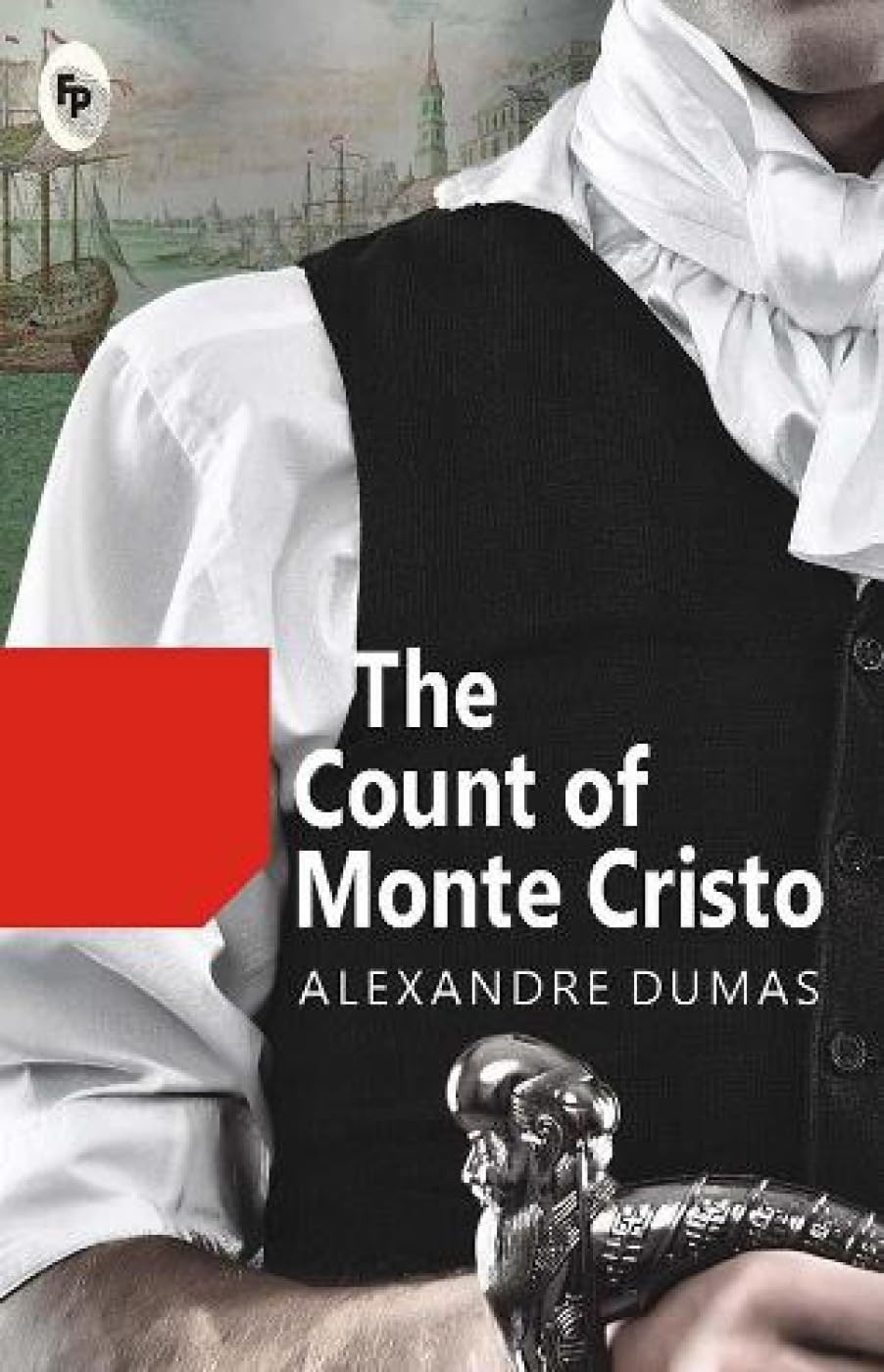Is The Count Of Monte Cristo Still Relevant? A Modern Review

Table of Contents
Enduring Themes of Revenge, Justice, and Betrayal
The Count of Monte Cristo is more than just an adventure story; it's a profound exploration of fundamental human emotions and societal structures. The novel's enduring power lies in its unflinching examination of revenge, justice, and betrayal – themes that remain strikingly relevant in our contemporary world.
The Allure of Revenge
The human fascination with revenge is a timeless archetype, and The Count of Monte Cristo masterfully depicts its seductive power. Edmond Dantes's transformation from wronged innocent to vengeful Count is a chilling exploration of how the desire for retribution can consume a person.
- Examples of the seductive nature of revenge: The meticulously planned schemes against Fernand Mondego, Danglars, and Villefort highlight the intoxicating allure of exacting revenge.
- Consequences of seeking revenge: The novel doesn't shy away from showing the devastating consequences of Edmond's actions, both for himself and those around him. His quest for revenge leaves a trail of emotional wreckage.
- Modern parallels to the desire for retribution: The contemporary obsession with "cancel culture" and public shaming reflects a similar, albeit less nuanced, desire for revenge that mirrors the novel's central conflict.
Justice and the Law
The Count of Monte Cristo serves as a potent critique of the legal system's imperfections and its potential failure to deliver true justice. Edmond's wrongful imprisonment exposes the vulnerabilities of a system susceptible to corruption and manipulation.
- Examples of injustice in the novel: The fabricated charges against Edmond, the biased trial, and the subsequent years of unjust confinement vividly illustrate the novel's critique.
- Comparison to modern-day concerns about legal fairness and systemic biases: The novel's themes resonate with contemporary anxieties regarding systemic racism, socioeconomic inequality, and access to justice.
- The novel's exploration of self-administered justice: Edmond's decision to take the law into his own hands raises critical questions about the ethics of vigilante justice and the limitations of formal legal processes.
Betrayal and Trust
Betrayal forms the very bedrock of The Count of Monte Cristo's narrative. The profound betrayals Edmond suffers at the hands of his supposed friends highlight the fragility of trust and the devastating impact of broken faith.
- Key betrayals in the novel and their consequences: The betrayals by Fernand, Danglars, and Villefort are pivotal plot points, each leading to irreversible consequences for both Edmond and those who wronged him.
- The impact of these betrayals on the Count's actions: The betrayals fuel Edmond's thirst for revenge and shape his subsequent actions.
- Relevance to modern relationships and societal structures: The novel's exploration of betrayal remains powerfully relevant in modern society, where issues of trust and loyalty frequently arise in personal and professional contexts.
Character Development and Relatability in a Modern Context
The enduring power of The Count of Monte Cristo lies not only in its themes but also in its richly developed characters. While set in a bygone era, the characters' motivations and struggles resonate deeply with contemporary readers.
The Count's Transformation
Edmond Dantes's transformation from a naive, optimistic young man to the cunning and vengeful Count of Monte Cristo is a complex and compelling character arc.
- Discussion of the Count’s motivations: His motivations, driven by a desire for justice and retribution, are explored in detail, allowing readers to grapple with the ethical implications of his actions.
- The psychological impact of his imprisonment: The years of unjust imprisonment profoundly shape Edmond's psyche, contributing to his transformation.
- The ethical dilemmas raised by his actions: The novel compels readers to consider the ethical complexities of revenge and the potential for self-destruction inherent in such pursuits.
- Modern psychological parallels: The psychological complexities of trauma, revenge, and moral ambiguity explored in the novel find parallels in contemporary psychological literature and case studies.
Complex Supporting Characters
The supporting characters in The Count of Monte Cristo are far from one-dimensional. Characters like Fernand Mondego, driven by ambition and jealousy, and Mercédès, torn between love and loyalty, are both compelling and relatable.
- Analysis of character motivations: The motivations of these characters are carefully examined, revealing the complexities of human nature.
- Examination of character flaws: The novel doesn't shy away from highlighting the flaws of its characters, adding to their realism and relatability.
- Relevance of character archetypes to contemporary society: The character archetypes found in The Count of Monte Cristo—the ambitious villain, the betrayed lover, the manipulative schemer—continue to resonate in contemporary narratives.
The Count of Monte Cristo's Literary Legacy and Modern Adaptations
The Count of Monte Cristo has left an indelible mark on literature and popular culture, inspiring countless adaptations and influencing subsequent works.
Lasting Influence on Literature and Film
Dumas's masterpiece has had a profound impact on storytelling across various media.
- Examples of works influenced by The Count of Monte Cristo: The novel's influence can be seen in numerous subsequent works, reflecting its enduring themes and narrative structure.
- Analysis of successful film and television adaptations: Numerous film and television adaptations have successfully reinterpreted the story for modern audiences, showcasing its enduring appeal.
- Exploration of how the story has been reinterpreted for modern audiences: These adaptations highlight the adaptability of the core narrative and its capacity to resonate with different generations.
Contemporary Relevance of the Narrative Structure
Dumas’s masterful narrative techniques, including suspenseful pacing and intricate plotting, continue to resonate with modern audiences.
- Discussion of the plot structure: The complex plot, with its numerous twists and turns, remains a model of effective storytelling.
- Effectiveness of suspense and pacing: The novel's ability to maintain suspense throughout its length is a testament to Dumas's skill as a storyteller.
- Comparison to modern storytelling conventions: While some aspects of the narrative might feel dated, the core principles of storytelling remain remarkably relevant.
Conclusion
So, is The Count of Monte Cristo still relevant? Absolutely. Its timeless exploration of revenge, justice, and betrayal, coupled with its richly developed characters and compelling narrative, continues to resonate with readers today. The novel's enduring appeal lies in its ability to tackle complex themes that remain profoundly relevant in the 21st century. Pick up a copy, or revisit this classic novel, and experience the enduring power of Dumas’s masterpiece. Rediscover the intricacies of the Monte Cristo story and let its timeless themes challenge and inspire you.

Featured Posts
-
 Inside The Nhl Western Conference Wild Card Playoff Race Update
May 04, 2025
Inside The Nhl Western Conference Wild Card Playoff Race Update
May 04, 2025 -
 Heatwave Alert In West Bengal Four Districts On High Alert
May 04, 2025
Heatwave Alert In West Bengal Four Districts On High Alert
May 04, 2025 -
 Comedienne Ruth Buzzi Icon Of Laugh In And Sesame Street Passes Away
May 04, 2025
Comedienne Ruth Buzzi Icon Of Laugh In And Sesame Street Passes Away
May 04, 2025 -
 Gibonni Na Sarajevo Book Fair Promovirat Ce Novo Izdanje
May 04, 2025
Gibonni Na Sarajevo Book Fair Promovirat Ce Novo Izdanje
May 04, 2025 -
 Who Is Nina Westbrook Exploring The Life Of Russell Westbrooks Wife
May 04, 2025
Who Is Nina Westbrook Exploring The Life Of Russell Westbrooks Wife
May 04, 2025
